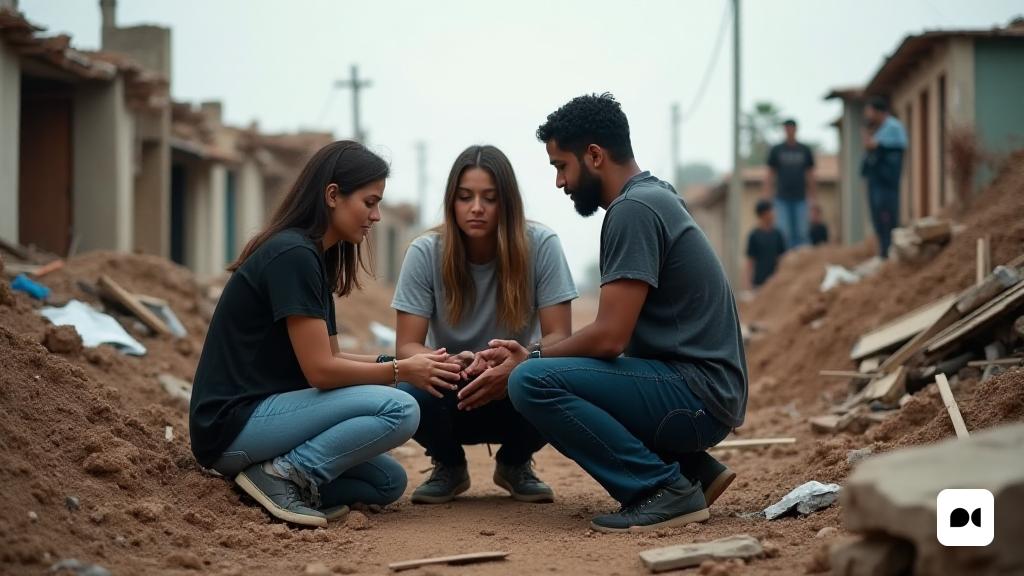A Response Needed in Times of Crisis
The first to step into this conversation is the psychologist, who questions the current state of the victims of a recent tragedy. Mental health professionals face a situation of exhaustion, immersed in a sea of pain and destruction. The official death toll remains unchanged, and frustration grips the team.
The Value of Volunteering in Recovery
Juan Rodríguez Abellán, one of the volunteer psychologists, is part of the Emergency and Disaster Intervention Group (GIPEC) of the College of Psychology of the Valencian Country. For ten days, they have been working in the most affected areas, collaborating with Psychologists Without Borders. Rodríguez highlights the initiative of the community, which has filled the gaps left by the authorities, despite being aware of the limitations this entails.
Transition from Grief to Recovery
The needs of the affected people have evolved. In the early stages of a catastrophe, the reaction is one of anguish and confusion. Over time, the community begins to adjust to the pain, but the emotional impact persists. Rodriguez sees an urgent need for emotional support to help pause and enable recovery as many find themselves caught up in acute stress.
The Institutional Response and Community Expectations
The response of the health system has generated discontent among volunteers. In critical moments, the presence of psychologists is essential, but public structures seem to be insufficient. At the Valencia Fair, where a psychological care service has been set up for relatives of victims, there are doubts about its effectiveness and accessibility for those who need immediate help.
The Need for Quick Action
Rodríguez proposes the creation of a mobile psychological care brigade to address needs wherever they arise. His experience has shown that direct intervention at the scene is more effective than moving victims to an unfamiliar and emotionally cold space.
Child Welfare in Disaster Situations
The return to school is presented as a crucial moment for the affected children. Psychologists and educators work together on protocols to help children express what they have experienced. Using drawing as a tool of expression, it seeks to transmit a message of hope and reconstruction in the midst of destruction.
The Power of Resilience
Resilience is a fundamental aspect in the recovery process. More than 70% of people who have experienced acute stress manage to recover on their own resources. Only a small proportion need ongoing professional care, demonstrating the community’s innate ability to cope with adversity.
The Importance of Community Support
The emotional support of the community becomes essential during the grieving process. Solidarity between neighbors and relatives can facilitate recovery, although the stages of grief vary for each person. Social rituals, such as funerals, play an important role, but it’s the constant connection with others that really helps heal.
The Need for Clear Information
Transparency in communication is key to the emotional safety of the community. The lack of accurate and immediate information can lead to anxiety and bewilderment. Uncertainty about the disappearance of loved ones is one of the biggest challenges faced by affected families, who struggle with constant tension until the cycle of grief is closed.
The Future of Mental Health in Critical Situations
It is essential that the public system guarantees continued support for affected populations. Volunteer emergency teams can provide immediate help, but the ultimate responsibility rests with institutions to ensure that mental health needs are adequately and sustainably addressed. Mental health awareness must be a priority in post-disaster reconstruction.

